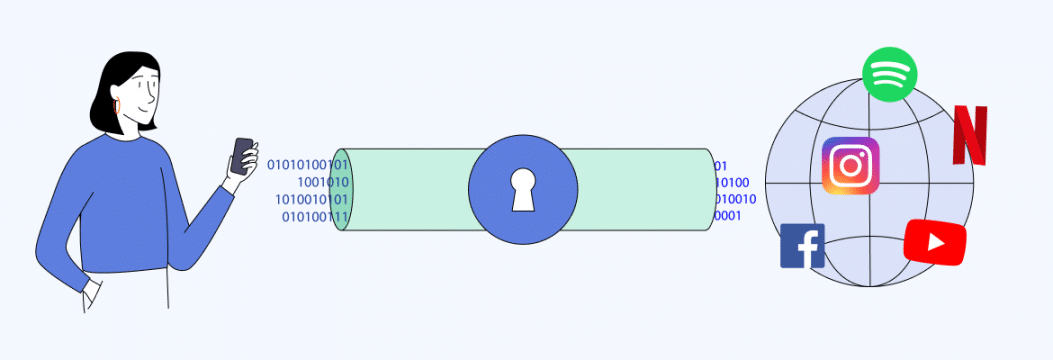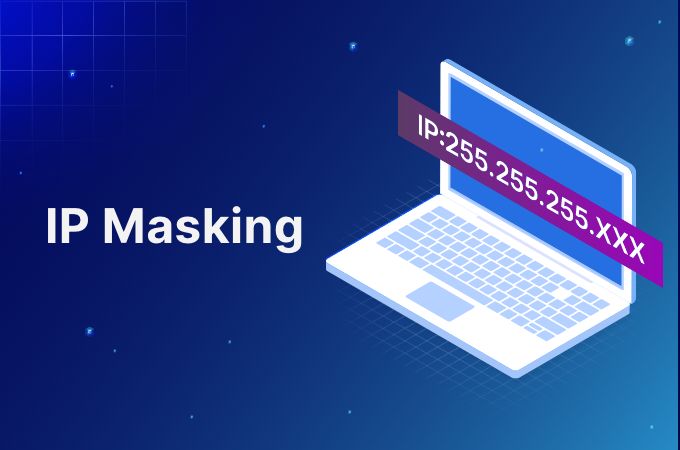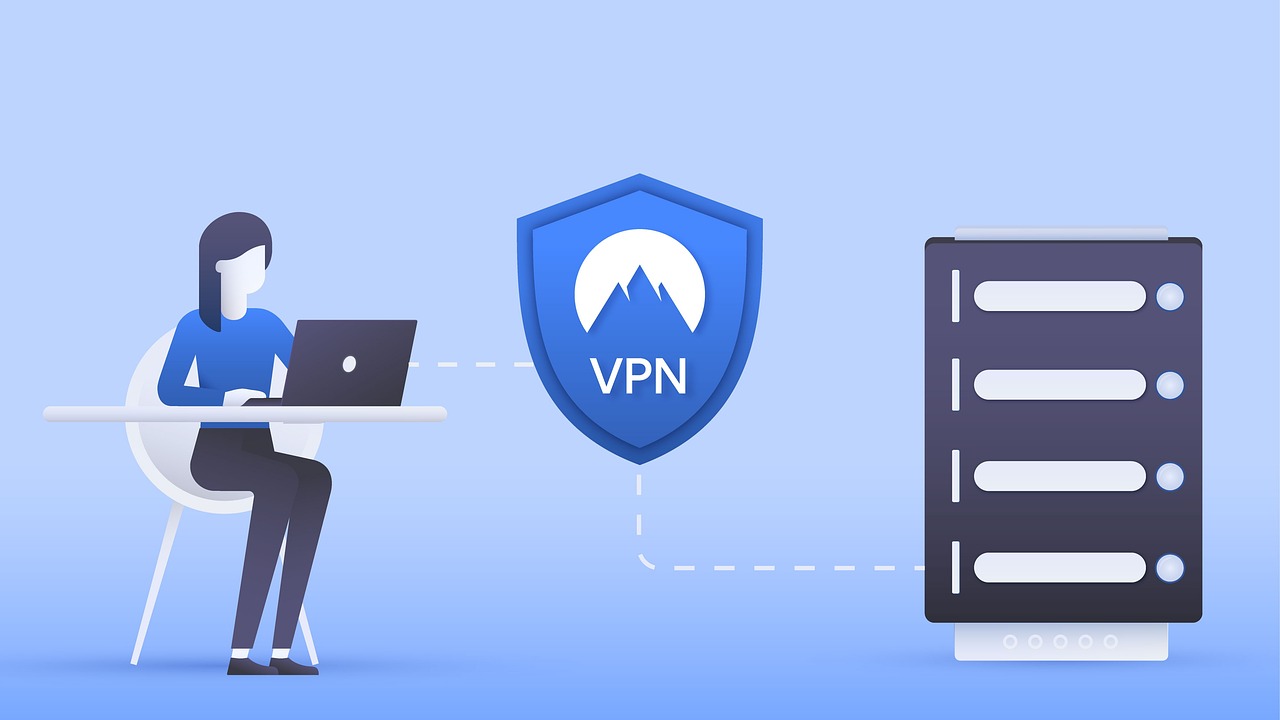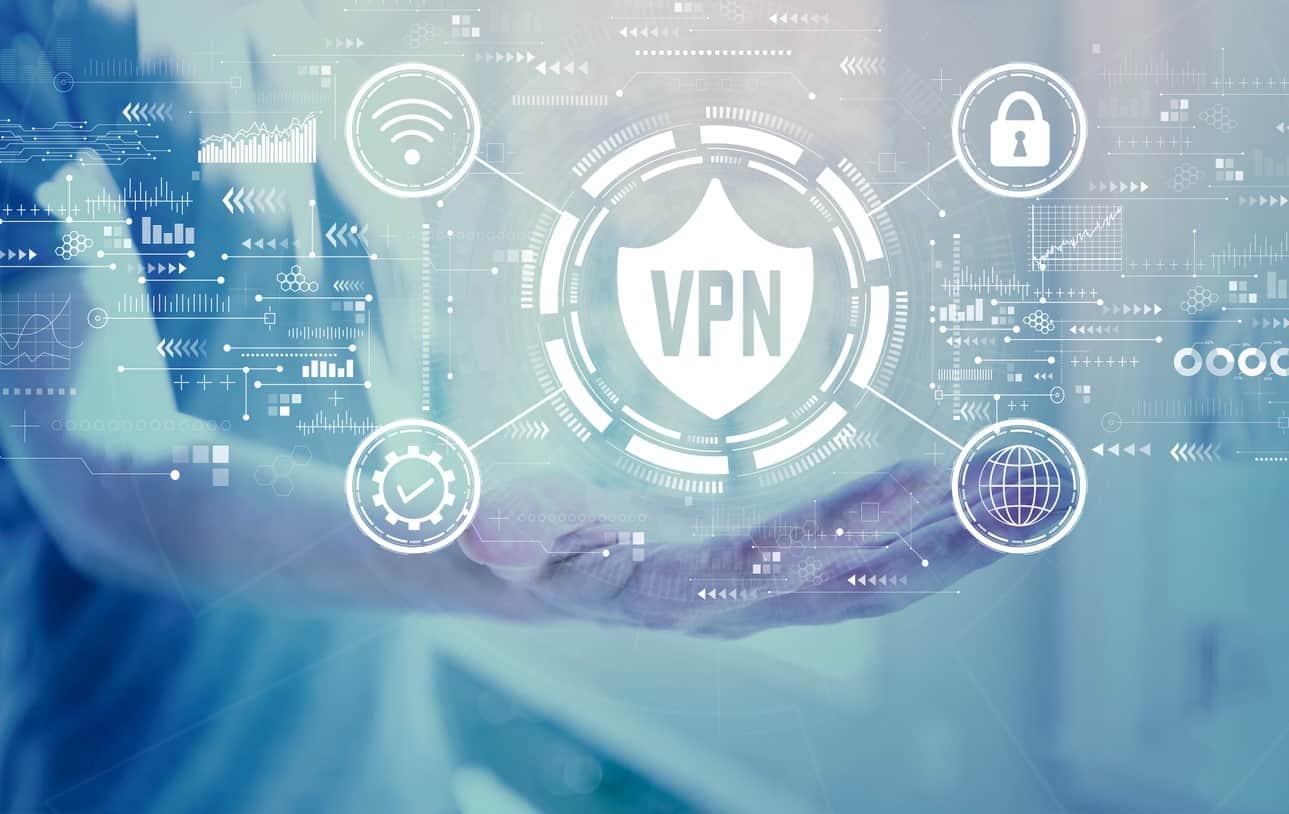In today’s digital landscape, securing sensitive information is more important than ever. One tool that has proven to be indispensable in enhancing cybersecurity is the Virtual Private Network (VPN). VPNs are becoming increasingly popular for personal use, as well as a security measure in organizations, due to their effectiveness in protecting data, especially on unsecured public networks. In this article, we’ll explore how VPNs work, the various ways they enhance cybersecurity, and why they are essential for data protection on public networks.
What is a VPN and How Does It Work?
A Virtual Private Network, or VPN, is a technology that creates a secure, encrypted connection over the internet, allowing users to transmit data safely across public or shared networks. The VPN essentially creates a “tunnel” between the user’s device and the internet, which hides the user’s IP address and encrypts their data, making it unreadable to unauthorized parties.
When a user connects to a VPN:
- Data Encryption: VPNs encrypt the data leaving the user’s device, converting it into a secure code that is only decipherable by the intended recipient.
- IP Masking: A VPN server assigns a different IP address to the user, which hides their real location and identity.
- Secure Access to Public Networks: The encrypted data travels through the VPN server to the internet, ensuring that even if a hacker intercepts the data on a public network, they cannot decipher it.
This combination of encryption and IP masking is what makes VPNs an invaluable tool for data protection on public networks.

Why is Data Protection Essential on Public Networks?
Public networks, such as those found in cafes, airports, hotels, and libraries, are often convenient, but they are notoriously insecure. Cybercriminals commonly target these networks to intercept users’ data, posing significant risks to personal and corporate security.
Risks on Public Networks
Using public Wi-Fi without a VPN exposes users to numerous cybersecurity risks, including:
- Man-in-the-Middle (MitM) Attacks: Attackers intercept data between the user and the network, allowing them to capture sensitive information like passwords, credit card details, and personal information.
- Packet Sniffing: Hackers can use packet-sniffing tools to monitor and capture data packets on unsecured networks, gaining access to the user’s data.
- Fake Wi-Fi Networks: Cybercriminals sometimes create fake Wi-Fi networks that look legitimate. When users connect, attackers can steal their data or install malware on their devices.
Given these risks, using a VPN on public networks becomes a crucial measure for data protection and privacy.
Enhancing Cybersecurity with VPNs: Key Benefits
VPNs provide a range of cybersecurity benefits that are essential in today’s interconnected world. These benefits make VPNs highly valuable for individuals, as well as businesses that want to protect their digital assets.
1. Data Encryption for Enhanced Security
The primary cybersecurity advantage of using a VPN is data encryption. When connected to a VPN, all data transmitted from the device is encrypted. This makes it extremely difficult for cybercriminals to intercept and read the information.
For example, if someone is accessing their bank account on a public Wi-Fi network, using a VPN would encrypt all the data involved in the transaction, including passwords, account numbers, and transaction details.
2. Protection Against Phishing Attacks
While a VPN can’t prevent phishing attacks directly, it provides an additional layer of security that can make phishing attempts more challenging for attackers. By hiding the user’s location and encrypting data, VPNs make it harder for attackers to target specific individuals with phishing schemes.
Using a VPN does not replace other security practices, like avoiding suspicious links, but it adds an extra layer of protection against certain types of phishing attempts.
3. Accessing Geo-Restricted Content Securely
In addition to data protection, VPNs allow users to access geo-restricted content. This feature is particularly valuable for businesses that need to conduct research across regions or for users traveling abroad who need to access information securely. By using a VPN, users can mask their IP address and securely access restricted content while keeping their data protected.
4. Anonymous Browsing and Privacy Protection
A VPN masks the user’s IP address and hides their online activities, enhancing privacy protection. When users connect to a VPN, their internet traffic appears to come from the VPN server’s IP address, not their actual location. This makes it much harder for websites, advertisers, and even cybercriminals to track their activities or gather data about their browsing behavior.

5. Preventing Bandwidth Throttling
Some internet service providers (ISPs) intentionally slow down, or “throttle,” bandwidth on specific services, such as video streaming or online gaming, to reduce network congestion. A VPN can help prevent this by masking the user’s activity, making it harder for ISPs to identify and throttle specific types of traffic.
For example, users streaming high-quality video content through a VPN may experience fewer slowdowns because the VPN prevents the ISP from identifying and throttling their streaming activity.
VPNs and Corporate Cybersecurity: A Necessity for Businesses
VPNs are also indispensable in corporate cybersecurity. With the rise of remote work and an increase in employees accessing company resources from various locations, businesses are increasingly adopting VPNs to protect their sensitive data.
1. Securing Remote Work Connections
Remote employees accessing company resources from various networks—some of which may be insecure—pose a significant cybersecurity risk. By implementing a VPN, companies can secure these connections, ensuring that employee access to company systems is encrypted and protected.
This is especially important when employees travel, work from cafes, or access work resources from home. VPNs create a secure pathway, preventing unauthorized access to company data.
2. Ensuring Compliance with Data Protection Regulations
Many industries, including healthcare, finance, and legal sectors, must comply with stringent data protection regulations such as GDPR, HIPAA, and CCPA. VPNs help businesses meet these requirements by protecting personal and sensitive data during transmission. A VPN’s encryption capabilities keep data safe and demonstrate a commitment to compliance, which is essential for maintaining customer trust and avoiding legal repercussions.
3. Securing Cloud-Based Applications
As companies increasingly rely on cloud-based applications, the risk of unauthorized access grows. VPNs offer an additional layer of security by ensuring that all data transmitted to and from the cloud is encrypted. This reduces the risk of data breaches associated with cloud applications, allowing companies to operate securely in a digital-first world.

Types of VPNs for Cybersecurity
Not all VPNs are the same. Different types of VPNs serve different purposes, depending on the needs of the user or organization.
1. Remote Access VPN
A Remote Access VPN allows individual users to connect to a private network and access resources remotely. This is commonly used by remote workers to access corporate networks securely. The connection is encrypted, ensuring that sensitive company data remains protected even on public networks.
2. Site-to-Site VPN
Site-to-Site VPNs are commonly used in large organizations with multiple office locations. These VPNs connect different networks across geographical locations, creating a secure and encrypted link between them. Site-to-Site VPNs are ideal for ensuring data protection across a distributed organization.
3. Personal VPNs
Personal VPNs are used by individuals who want to secure their internet connection, especially on public networks. These VPNs encrypt internet traffic, hide IP addresses, and provide users with privacy protection, making them ideal for travelers, remote workers, or anyone concerned about their online privacy.
Each VPN type has specific advantages, and understanding these can help users and businesses choose the best VPN solution for their cybersecurity needs.
Choosing a VPN: Key Factors to Consider
Not all VPNs are created equal, and selecting the right one is crucial for effective cybersecurity. When choosing a VPN, consider these key factors:
- Encryption Level: Choose a VPN with strong encryption standards, such as AES-256, which is considered highly secure.
- No-Logs Policy: A VPN provider with a strict no-logs policy does not store data about your online activity, ensuring higher privacy and security.
- Speed and Bandwidth: Since VPNs can slow down internet speeds, select a VPN with high-speed servers and unlimited bandwidth, especially if using it for streaming or gaming.
- Server Locations: For users needing access to geo-restricted content, ensure the VPN has a wide range of server locations.
- Reliability and Reputation: Research the VPN provider’s reputation for reliability and security. Reputable VPNs undergo regular security audits and have a solid history of protecting user data.

Limitations of VPNs in Cybersecurity
While VPNs offer numerous benefits, they are not a catch-all solution for cybersecurity. They provide protection for data in transit but do not protect against all types of cyber threats.
Limited Protection Against Malware
VPNs do not protect devices from malware, viruses, or phishing attacks. Users should complement VPNs with antivirus software and avoid clicking on suspicious links.
Dependency on VPN Provider
A VPN is only as secure as the provider. Some VPNs may have weak encryption, may log user data, or could even sell user data to third parties. It is essential to select a reputable VPN provider.
Performance Issues
VPNs can slow down internet speeds due to encryption processes and the distance data has to travel. Choosing a high-quality VPN service can minimize this issue but not eliminate it entirely.
Conclusion
VPNs play an essential role in cybersecurity, offering robust data protection on public networks and helping both individuals and businesses safeguard sensitive information. By encrypting data, masking IP addresses, and securing connections, VPNs provide invaluable support in an increasingly digital world filled with security threats. For anyone concerned about protecting their data and privacy, especially when using public Wi-Fi, VPNs are a critical tool in a comprehensive cybersecurity strategy.
With advancements in cybersecurity practices and a growing awareness of privacy, the use of VPNs is expected to continue to grow, making them an indispensable asset for secure internet use well into the future.

